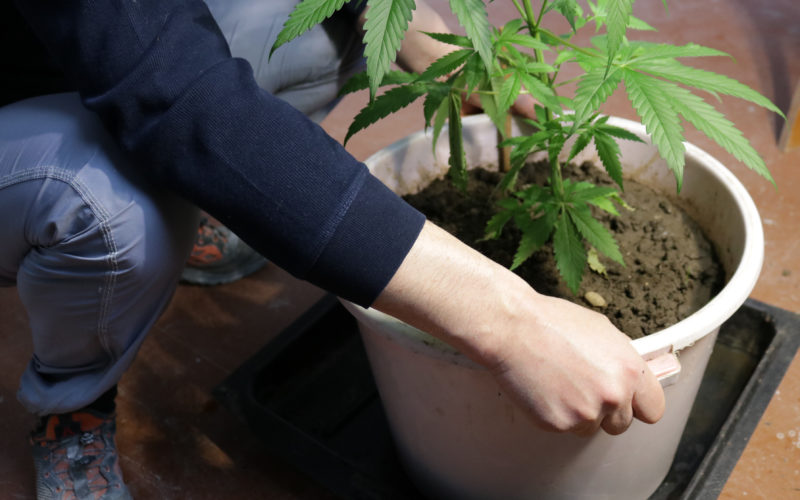
New PA bill could let residents grow their own pot for medical use
State senators Dan Laughlin and Sharif Street want to address convenience and access issues found across the state.
State Sens. Dan Laughlin and Sharif Street want to amend Pennsylvania’s medical marijuana program to permit patients to grow the herb in their own homes.
Earlier this year, Laughlin and Street proposed legislation to legalize adult-use of cannabis for recreational purposes. They have joined forces again to propose what will be known as the Medical Marijuana Home Cultivation Bill.
Today, @SenSharifStreet and I introduced our Medical Marijuana Home Cultivation Bill.
— Senator Dan Laughlin (@senatorlaughlin) November 17, 2021
This will go a long way towards helping everyday Pennsylvanians meet their health needs and ensuring everyone is treated equitably and fairly under Act 16.
Read More: https://t.co/DbmBhETVF0
On Wednesday, Nov. 17, the lawmakers released a co-sponsorship memo seeking support for their bill.
"It's obviously already been proven both in the United States and abroad that there are genuine medical conditions that can be effectively treated with this," Laughlin told the Erie Times-News on Friday.
Laughlin said the bill would also address convenience issues, especially for medical marijuana patients who don’t live close to a dispensary.
Marijuana has been proven to ease symptoms of many illnesses including cancer, Crohn’s disease, epilepsy, glaucoma, severe nausea, anxiety and chronic pain.
“For folks that have to get in a car and drive an hour or so away to get what they need to make themselves feel better when they could have a couple of plants right in their house, it does seem a little bit cruel to not allow them to do that,” Laughlin said.
Bipartisan Pennsylvania Senators Announce Medical Marijuana Home Grow Bill: "We can help ease the cost and accessibility burdens for this important medicine." https://t.co/GEDGSNB04t
— Marijuana Moment (@MarijuanaMoment) November 18, 2021
According to Pennsylvania Health Department data, about 2.6% of the population hold active patient certifications under the state’s medical marijuana program.
PA lawmakers approved the program in 2016, but did not allow patients to grow the plant at home.
RELATED CONTENT
To be eligible for a medical marijuana card, patients must have a qualifying medical condition and be prescribed a license through a program-certified physician.
The proposed amendment would allow patients to grow up to five adult marijuana plants, measuring more than five inches high, for personal use, without a cultivation center license. They could possess up to 30 grams of the cannabis they grow.
The bill states the cultivation must occur in an “enclosed, locked out” space that’s inaccessible to an unauthorized person, including those under the age of 21. Dispensaries would sell seeds to patients for home cultivation. Neither the seeds, the plants, nor the cultivated cannabis they produce can be sold or given to another person.
The home-grown provision also states that growing can only occur on residential property legally opened by the patient or with the permission of the property owner. Landlords could prohibit their tenants from growing cannabis.
In a news release, Laughlin and Street said that letting patients grow their own plants would help ease the cost and accessibility burdens.
"In some cases, patients have to travel more than two hours to reach a dispensary. And for many people with serious medical conditions — such as cancer patients and the terminally ill — medical expenses, a lack of insurance coverage for medical marijuana and a reduced ability to work make it difficult for individuals to afford dispensary-purchased medical marijuana,” they wrote.
According to The Marijuana Policy Project, 15 of the 19 states that have legalized adult-use cannabis and about half of the medical cannabis states allow for personal cultivation.
“In the states that have reasonable safeguards—such as limiting the number of plants per household and requiring plants to be secure and out of the public view—home cultivation of cannabis simply hasn’t been a problem,” Laughlin’s statement said.











LEAVE A COMMENT:
Join the discussion! Leave a comment.